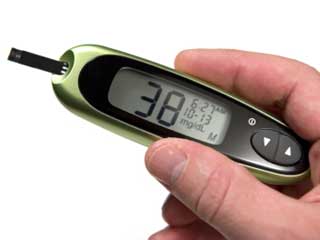When I recently read the American Diabetes Association’s 2013 Standards of Medical Care for Type 2 Diabetes, I found many extremely alarming guidelines. Foremost is the complete over-reliance on the pharmaceutical management of diabetes and its complications, along with a complete absence of recommendations for use of critical nutritional support. The major shortcoming of pharmaceutical interventions in Type 2 diabetes is that they don’t impact the progression of the disease, and in many cases actually accelerate the underlying disease process and increase mortality. Yet this approach is the only one offered by conventional medicine.
The key issue that’s not addressed by the ADA or other conventional medical groups dealing with diabetes is that drugs are only biochemical band-aids. There is one fundamental truth that is rarely explained to the patient: Type 2 diabetes in almost every case is a disease caused by diet and lifestyle. Findings from the U.S. government’s Third National Health and Nutrition Examination Survey (NHANES III) clearly support this statement. Of individuals with type 2 diabetes, 69% did not exercise at all or did not engage in regular exercise; 62% ate fewer than five servings of fruits and vegetables per day; and 82% were either overweight or obese.
Among patients with pre-diabetes, a minimum of 150 minutes a week of physical activity similar in intensity to brisk walking was associated with a 58% reduced risk of developing diabetes. This study, the Diabetes Prevention Program, also looked at early drug therapy with metformin as a possible prevention strategy. The metformin reduced the risk by 31%. In other words, walking was nearly twice as effective!
Natural Approaches to Type 2 Diabetes
Diet alone can often be effective as the sole factor in treating and reversing Type 2. Other lifestyle factors and supplements are important, but treatment of Type 2 begins with diet. There is considerable evidence from clinical trials that a diet low in refined carbohydrates is emerging as the most scientifically proven approach, especially when considering not only its effect on blood glucose levels, but also the effects it exerts in reducing the sequelae of diabetes, such as high cholesterol levels, cardiovascular disease, hypertension, and other complications.
The treatment of diabetes with natural medicine also involves trying to achieve ideal blood glucose control and metabolic targets, as well as reducing the risk of the complications of diabetes by focusing on the following four areas:
- Providing optimal nutrient status.
- Reducing after-meal elevations in blood glucose levels.
- Improving insulin function and sensitivity.
- Preventing nutritional and oxidative stress.
One of the centerpiece supplements for Type 2 diabetes is highly viscous dietary fiber products. A good high-potency multiple vitamin and mineral formula is also a must and should provide 200 to 400 mcg of chromium – a key mineral in the proper utilization of insulin. Other considerations include:
- Alpha lipoic acid (400 to 600 mg), which not only helps improve insulin action, but also helps prevent and reverse diabetic nerve disease.
- Flavonoid-rich extracts like bilberry, grape seed, or pine bark, which are extremely important in protecting against the long-term complications of diabetes.
- Onions and garlic, which have demonstrated blood-sugar-lowering action in several studies and help reduce the risk of cardiovascular disease.
- The oral administration of mulberry extract, cinnamon extract, or extracts of Gymnema sylvestre, which have all been shown to produce very good results in improving blood sugar control.
Before you swallow everything the American Diabetes Association recommends in terms of medications for your Type 2 diabetes, do yourself a favor and learn more about natural approaches that include a healthy diet, superfoods for diabetes, exercise, and nutritional supplements.




